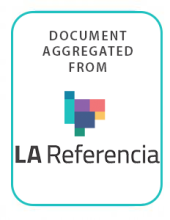Land Library Search
Through our robust search engine, you can search for any item of the over 73,000 highly curated resources in the Land Library.
If you would like to find an overview of what is possible, feel free to peruse the Search Guide.
/ library resources
Showing items 91 through 99 of 1198.This article describes and analyses the tensions, ambivalence, and hybridity that prevail in the nexus between discourses of gender and the legal pluralism of the new, formalized, and customary ways of handling land titles.
ABSTRACTED FROM INTRODUCTION: This report is the result of a participatory action research (PAR) conducted by members of Khupra community and Karuna Mission Social Solidarity-Loikaw (KMSS-Loikaw) Livelihood Program team between October 2015 to November 2016.
This paper explores assumptions about the drivers of forest cover change in a Payments for Environmental Services (PES) and Reduced Emissions from Deforestation and Degradation (REDD+) context in the Lam Dong Province in Vietnam.
Political and economic transitions have had substantial impacts on forest conservation.
ABSTRACTED FROM WEBSITE INTRODUCTION: This briefing looks at the particular situation of people displaced by armed conflict.
Political transitions often trigger substantial environmental changes. In particular, deforestation can result from the complex interplay among the components of a system—actors, institutions, and existing policies—adapting to new opportunities.
Up to 2.5 billion people hold and use the world’s community lands, yet the tenure rights of women—who comprise more than half the population of the world’s Indigenous Peoples and local communities—are seldom acknowledged or protected by national laws.
Resumen A la luz de los aportes de numerosos investigadores, me propongo debatir en este artículo, lo que en auge se viene denominando como la ciudad neoliberal.
Forest landscape conflicts can be devastating on many levels – economic, environmental and social, from individual, to subnational, national and global levels. They are symptomatic of many issues revolving around weak governance. The problem is that seldom are they effectively addressed.


